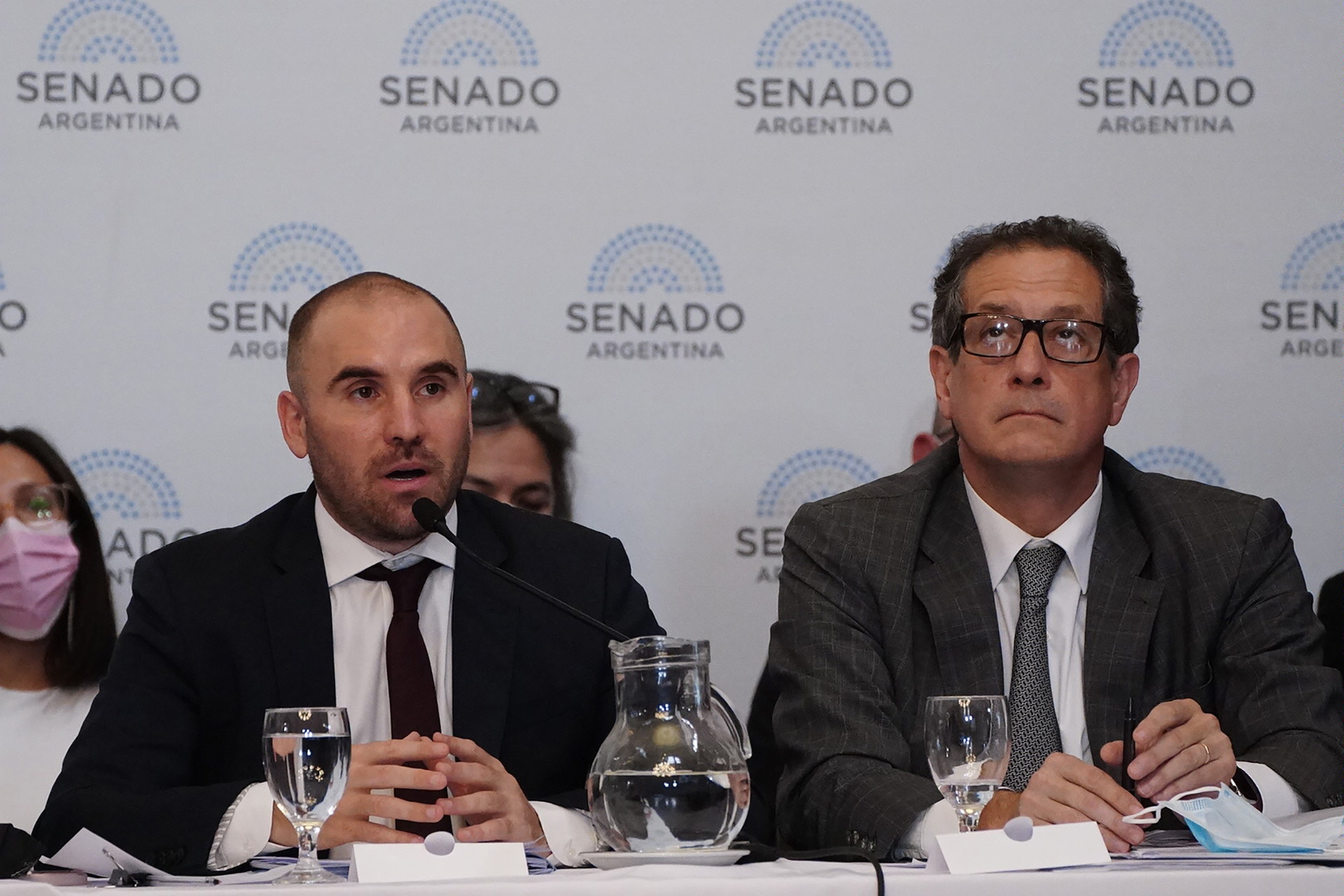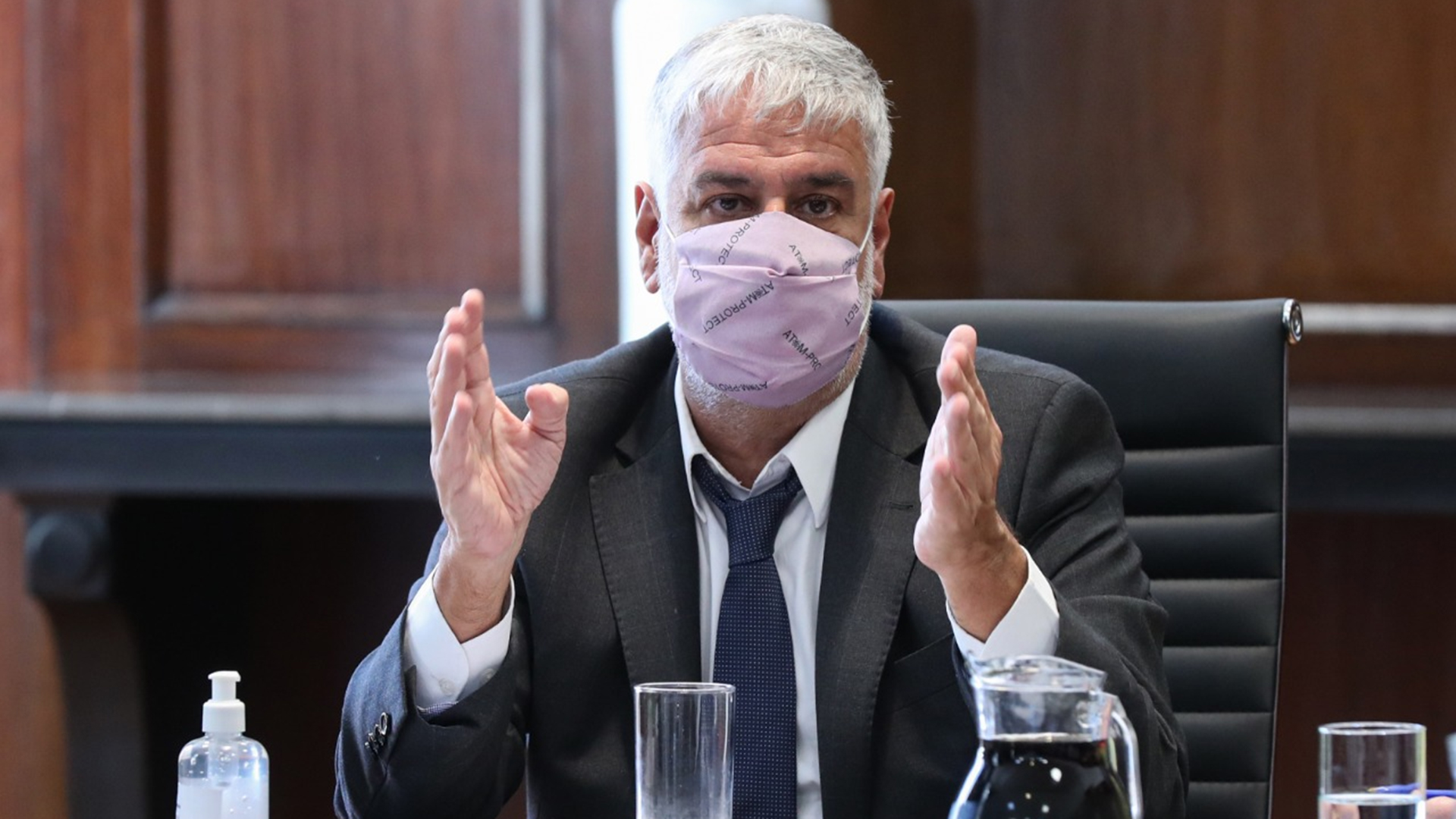
President Alberto Fernández used a war metaphor to mark the beginning of a “war”, referring to a pricing policy for combat persistent inflation since next Friday, after the 4.7% that marked the higher-than-expected price index in February. In the same tone as the president's speech, the Government has a limited army of measures and regulations to deal with inflation rates: from lighter ones such as different types of agreements with entrepreneurs, others tougher such as a possible increase in export duties for some agricultural products, to other more “technical” ones that are part of the agreement with the IMF, such as a rise in interest rates in pesos.
The economic team is still trying to gauge the impact of the international price shock - on food and also on energy - which immediately implied an effect on domestic values. The first victims were foodstuffs derived from wheat and corn, which according to the official diagnosis had alarming increases in the last three weeks, coinciding with the beginning of the war in Ukraine. Later in the year, the shock wave will come through a higher cost of gas to be imported for the months of greatest demand in winter.
This disruptive scenario at the international level already calls into question some of the statements recorded in the memorandum of understanding with the IMF that will be discussed by the Senate in the coming days and which would be approved by the Board of the Monetary Fund hours later, before the debt maturity next Monday. The main variable that was targeted is the forecast of inflation, which ranges between 38 and 48 percent for this year, well below the expectations of the private sector and even analysts close to the government coalition. The annualized inflation of the first two months (8.8%), per case, would imply a price increase well above 60%, according to private analysts.
A reading that they were risking in an official office not linked to economic governance on the presidential expression of a “war” against inflation since next Friday was related to the fact that the termination of the parliamentary process in the Senate of the agreement with the IMF, which would mean closing the long chapter of global renegotiation of the dollar debt of the Frente de Todos Government - which began with private bondholders in February 2020 - and would give way to a change of page, already with an economic roadmap for the coming years.

One official even recalled in the afternoon a similar metaphor used more than 30 years ago by Raúl Alfonsín's Deputy Minister of Economy Adolfo Canitrot, when he argued that he had to “put on his helmet”. “Alberto is a lawyer, not a poet”, they mentioned from an office ironically about the president's war reference.
The truth is that in the two years and months of the FrontTodist mandate there were already several previous battles against inflation that were unsuccessful, such as some price freeze programs that were inefficient in containing the escalation in the gondolas. There was even a change of command in the Ministry of Internal Trade in view of the failure to establish a concrete price dam. The last alternative sought by the Government was through special trusts agreed between exporters and supermarkets that subsidize the local price of certain products, such as oils. The objective of such measures is to “decouple” international values from domestic ones.
This, in the reading of the Ministry of Economy, is the “favorite” measure of the current economic management to carry out a fight against inflation, although they say that the situation due to the war conflict in eastern Europe changed the scenario and forces us to make other kinds of decisions. The contrast is clear: a few weeks ago, when the war had not yet broken out in Ukraine, a senior official of the economic team emphatically ruled out touching export duties.
In the coming weeks, there will also be a negotiation that will be opened between the Ministry of Internal Trade and mass consumer companies. At the beginning of April, the Care Prices program, which contains a large basket of food and beverages, should be renewed. Talks will begin in the coming weeks to determine what percentage increase for the 1,300 goods. In January, the adjustment had been 2 per cent.

The agreement with the IMF includes some declamative measures on how to combat inflation, a “multicausal” view - lack of dollars, monetary and fiscal policy and coordination of expectations - and an expected range of price increases for this year of between 38% and 48%, agreed with the agency's technicians. Private consultants and even schools for studies related to Kirchnerism believe that the very nature of the multiannual economic programme is inflationary in nature, and they expect higher rates than that officially projected arc.
The Government and the Monetary Fund also expect that by 2024 the disinflation horizon can only go up to a figure just under 30%, according to the memorandum of understanding that the Executive Branch sent to Congress.
The Proyecto Economico study center, owned by former deputy Fernanda Vallejos, questioned that “to achieve this goal, taking into account January's data, the monthly inflation rate for the remaining eleven months of 2022 should not exceed 3.27% per month. However, the inflationary boost of the exchange rate rule (combined with international inflation) and the new tariff policy, leads to higher (rather than lower) rates of inflation.

For her part, Lorena Giorgio -chief economist of the consulting firm Equilibra- mentioned that “the inflation target also seems to become obsolete after the shock of international prices. We think more of a number that starts with 6. We are seeing inflation of at least 60% this year. When you look at this year's numbers and the first projections for February, they are around 4% with no tariff adjustment or greater acceleration of crawling peg. It's a floor for monthly inflation for the rest of the year,” he said.
Minister Guzmán was repeatedly consulted by deputies and senators between last Monday and yesterday in committees on the feasibility of the projection inflation stipulated in the program with the IMF. The official replied that “the expected inflation is that” but it opened the window to the possibility that the international price shock caused by the war in Ukraine would involve scenarios beyond expectations, especially in terms of spending on energy imports.
“The war between Russia and Ukraine is present in Argentina, today it is seen in the prices of what is paid in everything related to commodities, such as products that consume wheat, eggs, milk, oils, the consumer basket,” Guzmán said to the Senate. “The impact on food prices is significant and clearly seen in the last three weeks. Doing nothing implies a situation in which this shock ends up being profoundly regressive,” Guzmán continued.
In a similar vein, Chief of Staff Juan Manzur said, who mentioned that although the tool that the Government had been using was that of the private price agreement through trusts that subsidize local prices - for example, of oils - “there are other types of measures, such as the one that the Minister of Agriculture had to take Julián Dominguez (referring to the temporary closure of exports) that are understood within the framework of absolute exceptionality”, because of the war in Ukraine, said the chief minister.
This Tuesday Alberto Fernández was more direct in talking about the price situation: “Every time we believe that the situation is ordered everything has become more complicated. When we think that the pandemic left us free ground to advance, a war breaks out in Europe, which has repercussions all over the world, and also in Argentina, which come in the form of economic complications,” said the president. “The biggest complication is that that war has sparked a tremendous struggle for food and prices are flying around the world,” he added.
“I hope that this week we can begin to put the debt issue in order, and I promise that on Friday another war will begin, the war against inflation in Argentina; we will end the speculators and we will put things in order,” he said.
February inflation was 4.7%, a higher monthly rate than expected and thus accumulated 52.3% in the last year. According to the diagnosis of the Ministry of Economy, prices showed an immediate impact of the war conflict in eastern Europe. “The indicator was affected by the impact of the rise in international prices of major commodities, due to the drought and conflict in Ukraine,” said the Treasury Palace. The Russian invasion, however, began on February 24, just four days before the end of the reference month for the last CPI.
KEEP READING:
Últimas Noticias
Debanhi Escobar: they secured the motel where she was found lifeless in a cistern

The oldest person in the world died at the age of 119

Macabre find in CDMX: they left a body bagged and tied in a taxi
The eagles of America will face Manchester City in a duel of legends. Here are the details

Why is it good to bring dogs out to know the world when they are puppies




